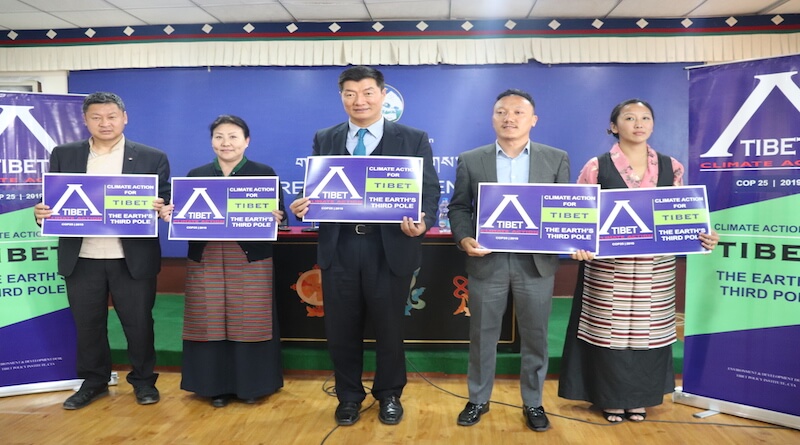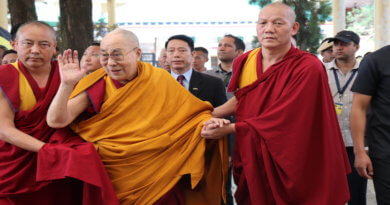Climate action for Tibet campaign launched ahead of COP25 UN Climate Summit

DHARAMSALA, 6 Nov: The Central Tibetan Administration(CTA) today urged the the world leaders to recognise the global ecological importance of the Tibetan plateau and make Tibet central to any discussion on global climate change as it launched its 2nd ‘Climate Action for Tibet: ‘The Earth’s Third Pole’ campaign ahead of the 2019 United Nations Climate Change Conference, also known as COP25 UN Climate Summit to be held in Spain over 2-13 Dec.
“The environmental issue of Tibet is apolitical that should concern the entire people of the world,” the President of the CTA Dr Lobsang Sangay said as he chaired the launch of the campaign.
President Sangay further highlighted the ecological significance of the Tibetan plateau that boasts 46,000 glaciers and stands next to the North Pole and the South Pole of the world in terms of the natural repository of ice, and the largest source of accessible fresh water on earth and said that to understand and study global climate crisis, it is must to study its effects on the Tibet.
Tibet Policy Institute(TPI), the CTA’s research centre which has initiated and leads the campaign has highlighted Tibet as the head source of Asia’s six largest rivers (Drichu/Yangtze River, Machu/Yellow River, Zachu/Mekong River, Gyalmo Ngulchu/ Salween River, Yarlung Tsangpo/Brahmaputra River and Senge Tsangpo/Indus River) that flows into Pakistan, India, Nepal, Bangladesh, Burma, Thailand, Laos, Vietnam, Cambodia, China and supports the lives of 1.5 billion people.
“Unfortunately, the Tibetan Plateau has seen an increase in temperature of approximately 0.3 degrees Celsius every ten years. This means that over the past 50 years the temperature has increased by 1.3 degrees Celsius, which is three times the global average. As a result, 82 per cent of the ice has retreated with 66 per cent of the glaciers in danger of melting by 2050. This would have disastrous consequences for the global society in general and in particular for the people of South Asia,” the TPI said in its press release.
Tempa Gyaltsen Zamlha, Head of Environment & Development Desk of the TPI stated that Tibet has witnessed an increase in natural disasters since 2016 which he credited to climate change and China’s rampant and ill-advised mining and construction activities in Tibet in recent years.
The CTA launched its Five-Point Call to Action ahead of the COP25 with an objective to bring to the fore the centrality of Tibet in any and all discussion on climate change and its pertinent significance to the global ecology.
The CTA’s Five-Point Call to Action stated that the United Nations Framework Convention on Climate Change (UNFCCC) must recognize the global ecological importance of the Tibetan Plateau and should strengthen climate change research on the Tibetan Plateau.
Called on the Chinese government to respect the traditional knowledge of and way of life in Tibet and strictly regulate urbanization and tourism in Tibet.
And need for the international community to carry forward this global ‘Climate Action for Tibet: The Earth’s Third Pole’ campaign.
The Tibetan administration in exile also announced a series of events such as panel discussion ‘Climate Action for Tibet Campaign’ on 13th Nov. on Tibet tv, a marathon; ‘Climate Run for Tibet’ in Dharamshala on 17th Nov. followed by an Exhibition-cum-Panel Discussion on ‘ Tibet’s Environmental Situation’ at the Tibet Museum on 20th November 2019 and two panel discussion on ‘Climate Change on the Tibetan Plateau: the Earth’s Third Pole’ in Madrid, during the official UN climate Summit in Spain.
The CTA maintains that campaign is a follow up to the hugely successful ‘Climate Action for Tibet: The Roof of the World’ campaign, which was launched four years ago during the COP21 UN Climate Summit in Paris in 2015 and called on the general public to make the second campaign a successful one too with their active participation.






